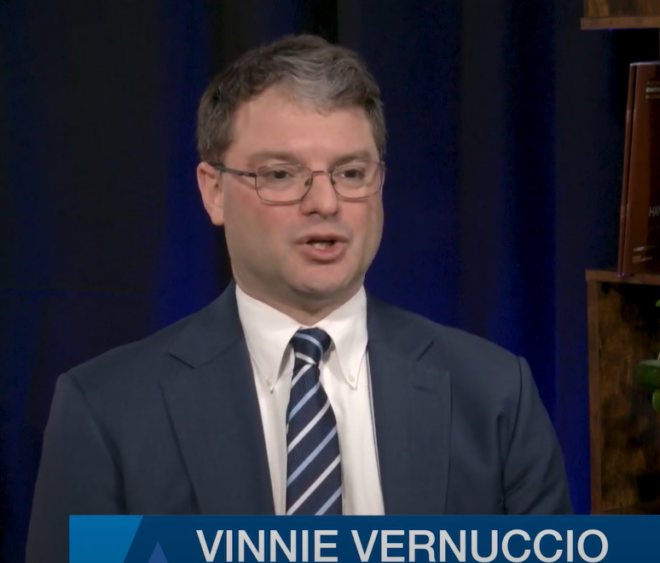Posts tagged Janus v. AFSCME
Despite President Joe Biden’s repeated boasts, union membership continues to fall
July 18, 2023 // Union members do not always agree with Democrats on policy matters. Biden's own green energy agenda is coming up against labor resistance, with organized auto workers prepared to strike over the hazards and lack of benefits in electric vehicle production. Biden must also work to keep blue-collar union members from slipping into the Republican column as candidates like former President Donald Trump play up American manufacturing and the virtues of import tariffs. But more recent headlines showcase unions fighting their traditional battles over pay, benefits, and worker protections.
CUNY Professors’ Lawsuit Challenging Forced Association with Antisemitism-Linked Union Continues at Second Circuit
June 5, 2023 // City University professors challenge NY law that forces them to be represented by hostile union hierarchy Six City University of New York (CUNY) professors have taken their federal civil rights lawsuit against Professional Staff Congress (PSC) union officials to the Second Circuit Court of Appeals. The professors, Avraham Goldstein, Michael Goldstein, Frimette Kass-Shraibman, Mitchell Langbert, Jeffrey Lax, and Maria Pagano, charge PSC union bosses with violating the First Amendment by forcing them to accept the union’s monopoly control and “representation” – “representation” the professors not only oppose, but find extremely offensive and in contradiction to their personal beliefs.
Arkansas teachers freed from compulsory union membership; what about Kansas?
April 28, 2023 // K.S.A. 75-5501 currently has an unconstitutional minimum 180-day dues-withholding requirement with no provision for employees to resign and stop paying dues whenever they wish. The Kansas National Education Association (KNEA) only allows teachers to resign and stop paying dues in August. Restrictions of this nature effectively make union membership compulsory. There have been several attempts to protect public employee rights in the Legislature, but teachers’ and other public employees’ rights are still not recognized in Kansas, but legislators are not giving up.

Video: ALEC’s Labor of Love: A History of Championing Worker Freedom
March 10, 2023 // Today, ALEC debuts its first episode, “Worker Freedom,” in our 50th anniversary video series. The episode features ALEC champions Scott Walker (45th Governor of Wisconsin), Matt Hall (Michigan House Minority Leader and ALEC Board of Directors Member), and Vinnie Vernuccio (Senior Fellow, Mackinac Center), discussing ALEC’s pivotal role in securing Worker Freedom policy wins across the states. In some states, private sector workers can be forced to join, leave, or pay fees to a union as job requirement. The Right-to-Work Act, which ALEC task forces approved as a model policy, provides a solution to this issue. It prevents private employers from requiring or banning union membership (or fees) as conditions for employment, giving workers in Right-to-Work states a guaranteed right to support a union or not to support a union without this choice affecting their hiring or job security.

Supreme Court Misses an Opportunity to Protect Workers from Public-Sector Unions
January 26, 2023 // The Supreme Court decided today that it will not grant certiorari in the case Wright v. SEIU Local 503, one of several union-forgery cases currently working their way through the court system. By not hearing the case, the Court is allowing confusion about public-sector workers’ constitutional rights to persist. The Freedom Foundation, a conservative union-watchdog group, has found about a dozen cases where unions allegedly forged someone’s signature in order to keep taking money from their paycheck. Though it may seem like a simple question, lower-court rulings have failed to address the issue head-on.

Workers’ rights case appealed to Supreme Court by Washington think tank
November 30, 2022 // Kurk attempted to withdraw from the union in September 2018, but union officials denied the request, saying she could not resign until 30 days prior to the end of the collective bargaining agreement, Jun. 30, 2020. The Freedom Foundation sued LRCEA in 2019, asserting the union contract violates the First Amendment. Given the Janus ruling, the maintenance of membership provision is unconstitutional, the suit argued. Further, the 2017 California law could not be retroactively applied to Kurk. The suit was summarily dismissed by Judge Kimberly Meuller of the U.S. District Court for the Eastern District of California. The dismissal was upheld on appeal.
Two states, two visions for the future of labor “Right-to-work” is on the ballot.
October 3, 2022 // Two economic papers published in the last year also reached different conclusions about the consequences of right-to-work laws. The first found right-to-work laws associated with increased manufacturing employment, increased employment, and greater upward mobility. The second found that right-to-work laws lower wages and unionization rates.

The Battle for Worker Freedom in the States: Grading State Public Sector Labor Laws
September 30, 2022 // In the four years following the Janus v. AFSCME U.S. Supreme Court ruling, the nation’s four largest government unions—AFSCME, SEIU, NEA, and AFT—have lost almost 219,000 union members. The Janus decision to end forced unionism for government workers accelerated a long-term decline in membership. In response, government unions are conducting aggressive campaigns to unionize new workers with recent successes in Virginia and Colorado.
And Now the Union Would Like a Word in Private-Under Janus, government workers don’t have to join or pay. But behind closed doors it’s hard to say no
September 13, 2022 // Four years after Janus, plenty of government employers haven’t explained to workers that union membership is not a condition of employment. Some employee handbooks still say workers must pay the union to keep their jobs. And many—if not most—public employees don’t know that a contract negotiated by the union applies to them whether they pay dues or not. Government-worker unions enjoy outsize influence over government. Governors, mayors, county executives and school superintendents facing demands for private access to their employees must remember how the unions wound up with the privileges that make them so powerful.

Op-ed: Worker freedom and choice are still under attack
August 23, 2022 // In one dispute that reached the NLRB , an employee was told if she did not sign an authorization card, “the union would come and get her children and it would also slash her car tires.” In a 2012 United Auto Workers union drive in Chattanooga, Tennessee, workers claimed organizers said that signing cards would only indicate their interest in the union. But this was not true: Signing the card meant they authorized the union to represent them. Unions prefer the card check approach because it allows them to bypass the protections of a secret ballot election and helps them organize more dues-paying members. If an organizer threatens a worker to sign a card, the worker may comply just to get the organizer to go away.
